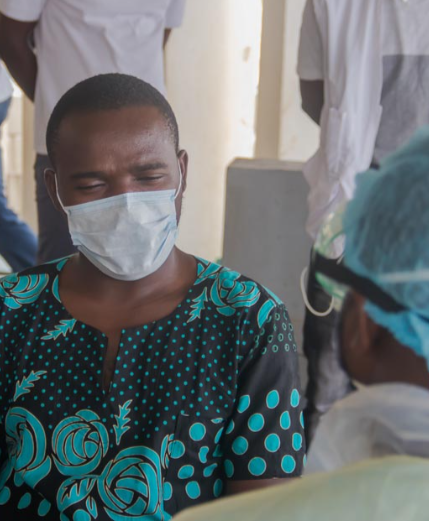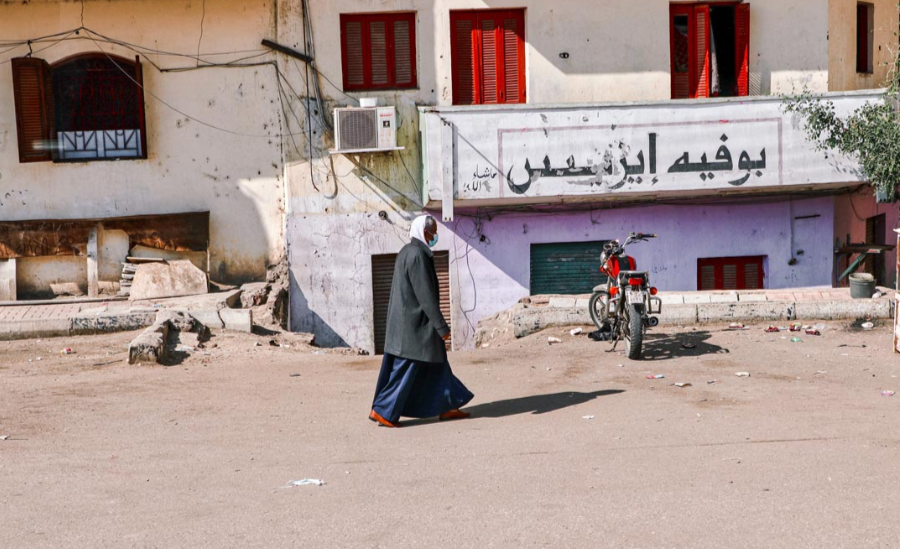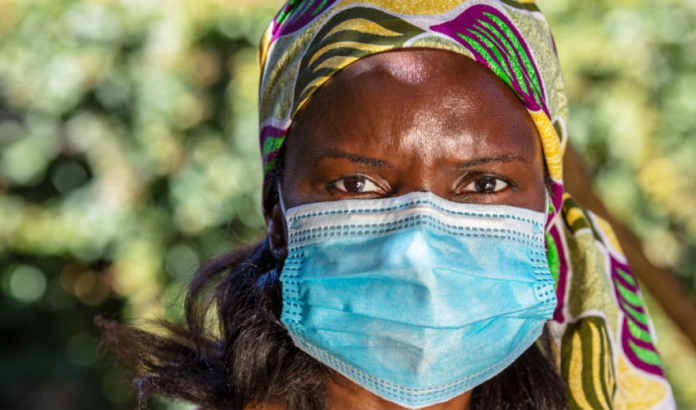Open Access Government caught up with Dr Mary Stephen, Public Health Expert at the World Health Organization African Region, who provides an update on the COVID-19 outbreak in Africa
In this brand new interview, Dr Mary Stephen, Public Health Expert at the World Health Organization (WHO) African Region, shares her thoughts on the year-plus-long battle against the virus, now receiving a crucial boost with vaccines through the COVAX Facility. COVID-19 vaccine deliveries give the pandemic a much-awaited boost and every new vaccine delivery to Africa is a step towards equity and ensuring people get their lives and livelihoods back.
Also, we discover how have Africa’s health systems been severely tested, with doctors, nurses and other health workers stretched to the limit. Find out here about the role WHO plays in supporting countries to strengthen COVID-19 infection prevention and control, such as training. Finally, learn how Africa sources vaccines and what the challenges in this respect and the importance of individual responsibility when it comes to the control effort.
A lot of ground is covered in this new interview and much has moved on since our first interview with Mary published in July 2020 about the early days of the COVID-19 outbreak in the African Region.
What are your thoughts on the year-plus-long battle against the virus, now receiving a crucial boost with vaccines through the COVAX Facility?
Yes, the COVID-19 outbreak has been the most challenging one the world has dealt with in recent years, but we have come a long way and learnt a lot in the process when dealing with the novel coronavirus. The outbreak continues to evolve, but medical science has advanced in terms of all the available tools for the response, starting from the testing itself, the issue of contact tracing, several innovations, surveillance and the treatments and now we are talking about the issue of vaccines. Of course, the only vaccine that has been developed in record time is the COVID-19 vaccine.

With regards to COVAX Facility, especially for us in Africa, it has been very helpful in facilitating access to vaccines, for most low- and middle-income countries. Concerning access to vaccines, the inequity remains, as you can see millions of doses have been administered but the majority of them are in high-income countries. We appreciate the doses the African continent has received via donations to the COVAX Facility.
How do COVID-19 vaccine deliveries give the pandemic a much-needed boost?
The availability of the COVID-19 vaccine has helped us to see light at the end of the tunnel because we have been battling this outbreak for some time. The availability of the vaccine now is helping in several ways. We are targeting the people at high risk, our health workers, the elderly, people with comorbidities. As a result of that, of course, when you cover this critical mass of people first, you will reduce health worker infection and prevent the pull out of health workers from their duty post when they get infected, so you have enough of them to continue to work in the hospital.
For the people that are likely to die, we know that the vaccine reduces the severity of the disease and if it does that, it means that, first of all, the ICU beds in the hospital will not be overwhelmed. It also means there is space for those coming into the ICUs for reasons other than COVID-19.
Then for the general population, if we have many people vaccinated, of course, we will start moving towards that level where we want to be in the future for herd immunity and the containment of the outbreak. We know vaccines, not just for COVID-19, have been known to be effective and many of them have facilitated the ending of emergencies.
We have a very good example of the meningitis vaccine in Africa (MenAfriVac), but before this was available we had many outbreaks on the continent, but now they have significantly reduced. We have eradicated polio in Africa for the same reason, so vaccines are very effective in terms of helping the WHO African Region control disease outbreaks.
So every new COVID-19 vaccine delivery to Africa is a step towards equity and ensuring you get your lives and livelihoods back. Is it important to further protect and equip health workers to effectively contribute to the efforts to contain COVID-19?
Health workers are critical for the response because we have sick people in the hospital who need to be taken care of. When the system is overwhelmed, it means that the available health workers may not be adequate in number to respond to an increasing number of cases. On the continent, they had to do a lot of repurposing sometimes because there are many people, even doctors, who are working in public health that could be deployed to the hospitals for clinical care of patients. People that have left work are returning to support the response effort.
If you take care of your health workers, you will prevent COVID-19 infection among them. Health workers are working longer hours and are not adequate in number to cope with the increasing number of cases, so you have to employ innovative ways to mobilise more so they can respond. And if you have COVID-19 infection among health workers, it means that the health worker has to be pulled out of the hospital.
So if you give health workers the COVID-19 vaccine, infection is reduced among health workers, it will help a lot in making sure that those that are sick have access to care. It also boosts the morale of other health workers. It’s really difficult, especially in emergencies like this, to take care of patients and then you see your colleagues continue to die, this kills people’s spirit. But with the vaccination, the number of severe cases will decrease. Therefore, the likelihood of health workers contracting and dying from the disease is reduced, so it keeps the enthusiasm high for health workers to continue to work and save lives.
How have Africa’s health systems been severely tested, with doctors, nurses and other health workers stretched to the limit?
The challenges of an infectious disease that spreads like this: we have had that situation before, even from Ebola in West Africa, where we had hospitals overstretched. And for many, it was so painful. If you look at the pictures from Sierra Leone, they showcased all the doctors and nurses there that died from Ebola, it was very painful. The protection of health workers goes a long way in control of outbreaks.
Masks are so important. How can people still go into a shop and not wear a mask?
I think it concerns the perception of the risks of that individual. A lot of people still believe that COVID-19 is not real. They don’t see the need to protect themselves and also protect others. Part of the messaging we need to be putting out should include not just protecting yourself but also the need to protect others. If you think you’re not very afraid of COVID-19, for instance, you still have the responsibility of protecting the person next to you.

What role has WHO played in supporting countries to strengthen COVID-19 infection prevention and control, such as training?
We support countries in all the response pillars, initially we did an assessment looking at the capacities for readiness and supported them to address those challenges. The training is still one of the things we do because we have a responsibility for capacity building as well. Even if we deploy experts to the field, we still insist on capacity building, training those on the ground, so that when the experts are pulled out, then the locals can replicate the same kind of strategies.
For infection prevention and control (IPC), we have done much training. We started with case management at the beginning because from the readiness assessment we did, there were still weaknesses in case management, including infection prevention and control. We started these activities before the borders started closing, we did regional training of trainers, to train a cohort of trainers that will go back to their country and cascade the training on the ground to the national experts.
When the borders closed, we started to move towards virtual training. The virtual space presents an opportunity to train a lot more people at the same time. We started doing a virtual training series, especially on infection prevention and control. WHO African Region has carried out training on disease surveillance, case management, and if anything comes up new concerning treatment or measures for prevention and control or any guidelines that are developed, we still do training to ensure that people understand how to adapt and implement it.
We have also collaborated with many medical groups to do training on psychosocial support when we noticed that health workers were having psychological issues due to the challenges with managing COVID-19 patients. As the situation evolves, we look at topics of importance and continue to train. Now, there are many issues on vaccination and we have done training on the deployment of the vaccine in Africa. We have also trained the Member States on conducting simulation exercises for vaccine deployment. This training is done all the time and it is part of the response, the capacity-building effort.
Thank you, we’ve had a very useful and interesting update on COVID-19 in the African Region. Is there anything you would like to add in closing?
I would like to encourage the general population to observe preventive measures. The COVID-19 outbreak is not over yet, and many people have lowered their guard, so we need to continue being diligent, and also comply with preventative measures, like wearing facemasks, keeping your distance and regular hand hygiene. These are important and proven preventive measures that help to reduce the spread of COVID-19. So as government is helping to treat patients and administer vaccines, as individuals, we also have a responsibility to observe the preventative and we have to be diligent about it so that we can help the government in the control effort.











